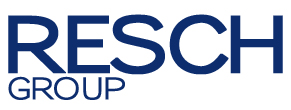If It Ain’t Broke, Fix It Anyway
Today’s project leaders must develop and possess strong, adaptive leadership styles with an incessant business focus to deal with the extremely situational nature of project management and business in general. Those who can adapt to changing business situations, market fluctuations, competitive pressures and conflicting personalities are far more likely to be effective than those who are too rigid or tied to a certain methodology. Managing a project without performing the required adjustments and improvements will eventually drain your company of its valuable and scarce resources—mainly money. In this increasingly competitive new world economy, our project management mantra must shift from: If it ain’t broke, don’t fix it to:
If it ain’t broke, fix it anyway!
Effective project management that utilizes the most optimal business improvement tools is paramount to ensuring that our strategic investments are generating their intended results. There is always room for improvement. Our projects are constantly ripe for fixing, adjusting, and enhancing along the entire life cycle. We must never become complacent just because we feel our projects are rolling along smoothly. We can always get better. We must get better to remain competitive and to consistently achieve optimal and enduring business results from our project investments.
This insightful workshop will teach you how to be business-savvy strategic thinkers and planners, strong and practical project managers and leaders, and effective change agents focused on the bottom line.
Course Learning Objectives
- Learn to become nimble and adaptive leaders in the face of business and economic uncertainty to drive continuous improvement for projects to achieve maximum returns
- Incorporate strategic business processes and quantitative methods to achieve, and even exceed, forecasted business objectives
- Embrace the tools and techniques necessary to become business improvement change agents and project turn-around specialists, such as:
- Aligning projects to corporate strategy
- Applying the Pareto Principle to your project portfolio
- Embracing ‘Mission First, People Always’
- Effectively managing UP, escalating, delegating and re-mobilizing commitment
- Planning, adapting, and if necessary, strategically changing direction
- Embracing the most important tool – the Business Case
- Performing ‘Voice of the Customer’
- Strengthening the foundation of your project
- Possessing an incessant focus on the business and business results
- Learn how to be a strategic leader by speaking proficiently in business and financial terms




